
George Hall (September 21, 1795 - April 16, 1868) was an American businessman and politician who served as the first Mayor of Brooklyn.

George Hall (September 21, 1795 - April 16, 1868) was an American businessman and politician who served as the first Mayor of Brooklyn.
George Hall was born in Manhattan, New York on September 21, 1795. [1] When he was a child his family moved to the town of Flatbush, where his father had purchased a farm. The family later relocated to Brooklyn, then a village, and after finishing his education at Erasmus Hall Academy Hall completed training to follow his father into the trades of painter and glazier. [2]

Hall became active in politics as a Democratic-Republican, was elected a village trustee in 1826 and 1832, and village president in 1833. He later joined the temperance movement, and became a member of first the Whig Party and later the American Party (Know Nothings). In 1834 the village of Brooklyn merged with the village of Williamsburgh to form the city of Brooklyn, and Hall was elected the first mayor, serving from 1834 to 1835.
Hall ran unsuccessfully for Mayor in 1844 and 1845. In 1855 he was again elected mayor, and he served until 1856. His second term was marked by efforts to combat a cholera epidemic, and grateful citizens undertook a subscription to purchase a house for him.
He joined the Republican Party in the 1850s, and in 1861 ran unsuccessfully for city recorder. During the American Civil War he was active in efforts to recruit soldiers for the Union Army.
In his later years Hall served as president of the Fireman's Trust Insurance Company.
Hall died in Brooklyn on April 16, 1868. He was buried at Green-Wood Cemetery in Brooklyn.

Neal Dow was an American Prohibition advocate and politician. Nicknamed the "Napoleon of Temperance" and the "Father of Prohibition", Dow was born to a Quaker family in Portland, Maine. From a young age, he believed alcohol to be the cause of many of society's problems and wanted to ban it through legislation. In 1850, Dow was elected president of the Maine Temperance Union, and the next year he was elected mayor of Portland. Soon after, largely due to Dow's efforts, the state legislature banned the sale and production of alcohol in what became known as the Maine law. Serving twice as mayor of Portland, Dow enforced the law with vigor and called for increasingly harsh penalties for violators. In 1855, his opponents rioted and he ordered the state militia to fire on the crowd. One man was killed and several wounded, and when public reaction to the violence turned against Dow, he chose not to seek reelection.
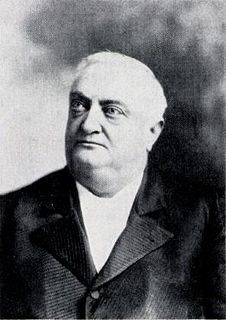
Daniel Lindsay Russell Jr. was the 49th Governor of North Carolina, serving from 1897 to 1901. An attorney, judge, and politician, he had also been elected as state representative and to the United States Congress, serving 1879–1881. Although he fought with the Confederacy during the Civil War, Russell and his father were both Unionists. After the war, Russell joined the Republican Party in North Carolina, which was an unusual affiliation for one of the planter class. In the postwar period he served as a state judge, as well as in the state and national legislatures.

George Opdyke was an entrepreneur and the 76th Mayor of New York City during the American Civil War. The New York City draft riots occurred during his tenure.

The mayor of New York City is elected in early November every four years, in the year immediately following a United States presidential election year, and takes office at the beginning of the following year. The city, which elects the mayor as its chief executive, consists of the five boroughs, which consolidated to form "Greater" New York on January 1, 1898.

Levi Lincoln Jr. was an American lawyer and politician from Worcester, Massachusetts. He was the 13th Governor of Massachusetts (1825–1834) and represented the state in the U.S. Congress (1834–1841). Lincoln's nine-year tenure as governor is the longest consecutive service in state history; only Michael Dukakis, John Hancock and Caleb Strong served more years, but they were not consecutive.

William Claflin was an American politician, industrialist and philanthropist from Massachusetts. He served as the 27th Governor of the Commonwealth of Massachusetts from 1869 to 1872 and as a member of the United States Congress from 1877 to 1881. He also served as chairman of the Republican National Committee from 1868 to 1872, serving as a moderating force between the Radical and moderate wings of the Republican Party. His name is given to Claflin University in South Carolina, a historically black college founded with funding from him and his father.
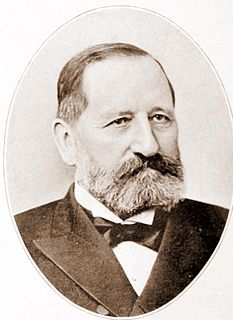
William Lafayette Strong was the 90th Mayor of New York City from 1895 to 1897. He was the last mayor of New York City before the consolidation of the City of Greater New York on January 1, 1898.
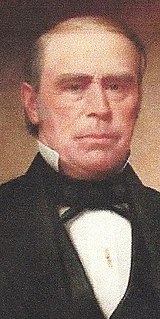
Nathaniel Springer Berry served as the 28th governor of New Hampshire during the American Civil War.

William Augustus Newell, was an American physician and politician, who was a three-term member of the United States House of Representatives, served as a Republican as the 18th governor of New Jersey, and as the 11th governor of the Washington Territory from 1880 to 1884. He is probably best known for, and was most proud of, the Newell Act, which created the United States Life-Saving Service.

Alexander Hamilton Bullock was an American lawyer, politician, and businessman from Massachusetts. First a Whig and then a Republican, he served three terms (1866–69) as the 26th Governor of Massachusetts. He was actively opposed to the expansion of slavery before the American Civil War, playing a major role in the New England Emigrant Aid Society, founded in 1855 to settle the Kansas Territory with abolitionists. He was for many years involved in the insurance industry in Worcester, where he also served one term as mayor.

William Gaston was a lawyer and politician from Massachusetts. A Democrat, he was the first member of that party to serve as Governor of Massachusetts (1875–1876) after the American Civil War. He was a successful trial lawyer and politically conservative Democrat, who won election as governor after his opponent, Thomas Talbot, vetoed legislation to relax alcohol controls.
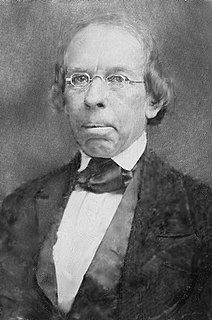
William Upham was an American attorney and politician from Montpelier, Vermont. He was most notable for his service as a United States Senator from Vermont.
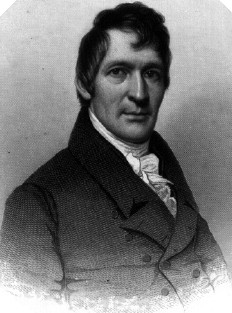
Cornelius Peter Van Ness was an American politician and diplomat who served as the tenth governor of Vermont from 1823 to 1826 and Envoy Extraordinary and Minister Plenipotentiary to the Kingdom of Spain from 1829 to 1836. Van Ness was a Democratic-Republican and later a Democrat.
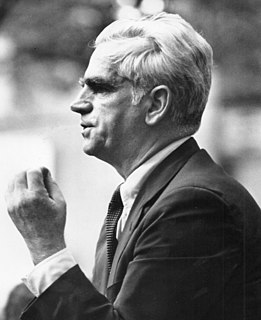
Peter Paul O'Dwyer was an Irish-born American politician and lawyer and the younger brother of Mayor William O'Dwyer and father to New York City lawyer Brian O'Dwyer.
Jacob Yost was an American politician who served as mayor of Staunton, as well as twice represented Virginia's Shenandoah Valley in the United States House of Representatives, from 1887–1889 and 1897–1899.

Stephen Benedict Grummond was a shipowner, marine industrialist, and the mayor of Detroit, Michigan.

The 1993 New York City mayoral election was held on Tuesday, November 2. Incumbent Mayor David Dinkins ran for re-election to a second term, but lost in a rematch with Republican Rudy Giuliani.

Amos Chafee Barstow was an American politician and businessperson. He served as the Mayor of Providence, Rhode Island, for one term, 1852–1853.
Francis Burdett Stryker was an American carpenter, politician, and Mayor of Brooklyn.